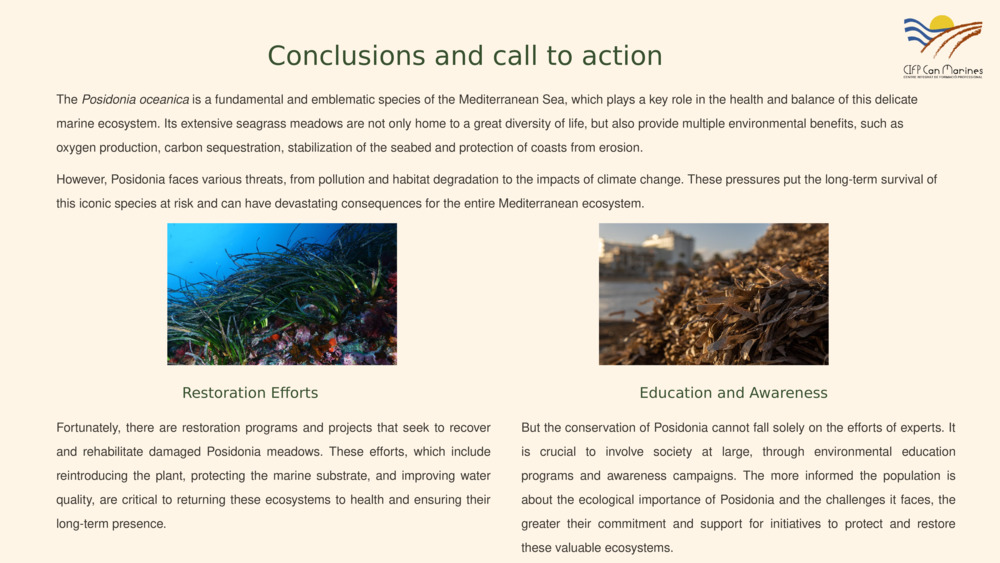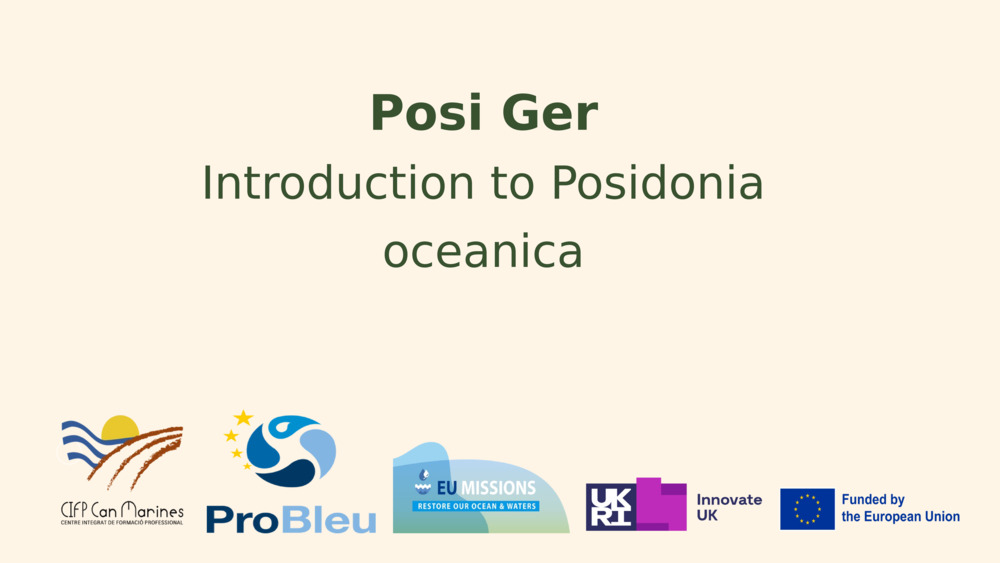Conclusions and call to action
Conclusions and call to action
Conclusions and call to action The Posidonia oceanica is a fundamental and emblematic species of the Mediterranean Sea, which plays a key role in the health and balance of this delicate marine ecosystem. Its extensive seagrass meadows are not only home to a great diversity of life, but also provide multiple environmental benefits, such as oxygen production, carbon sequestration, stabilization of the seabed and protection of coasts from erosion. However, Posidonia faces various threats, from pollution and habitat degradation to the impacts of climate change. These pressures put the long-term survival of this iconic species at risk and can have devastating consequences for the entire Mediterranean ecosystem. Restoration Efforts Fortunately, there are restoration programs and projects that seek to recover and rehabilitate damaged Posidonia meadows. These efforts, which include reintroducing the plant, protecting the marine substrate, and improving water quality, are critical to returning these ecosystems to health and ensuring their long-term presence. Education and Awareness But the conservation of Posidonia cannot fall solely on the efforts of experts. It is crucial to involve society at large, through environmental education programs and awareness campaigns. The more informed the population is about the ecological importance of Posidonia and the challenges it faces, the greater their commitment and support for initiatives to protect and restore these valuable ecosystems.

Original Slide Deck: Introduction to Posidonia oceanica
Topics: Biodiversity. Ocean.
Suitable Ages: 12. 13. 14. 15. 16. 17. 18.
Keywords: Conservation. Ecosystems. Habitats. Warming. Water Quality.
Uploaded By: CIFPCanMarines
Number of bundles using this content: 1
Licensed under CC BY 4.0
This content has been used in the following resource bundles:
Introduction to Posidonia oceanica
Introduction of Posidonia: Description Habitat and distribution Eco...
View Bundle